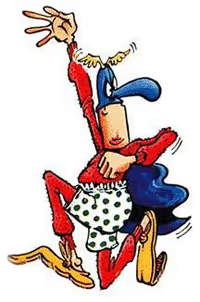Diversity on Broadway
#300Diversity on Broadway
Posted: 10/18/15 at 3:34pm
hork said: "Not everything is about geopolitical history" ---> "Racism is aboutgeopolitical racism." Are you saying everything is about racism? Verisimilitude is not racism. A Chinese production about 17th century China featuring a lot of white actors would be weird for reasons that have nothing to do with racism. That was my point. Although the point of that point is getting lost amid all this rhetoric."
Racism is huge in our country and a production about 17th century China featuring lots of white actors would be weird for the precise and overriding reason that white people don't have any reason to play Chinese characters. White people have been "putting their oar in" to other cultures for so long that the balance has been historically tipped, which is why a production about 17th century Britain featuring a lot of non-white people wouldn't be a bad thing - not only were there plenty of non-whites back then, but there have been so many white retellings of 17th century British narratives that they scan as being entirely normative.
"But is that the fault of the creative team of Gentleman's Guide? Why should they have to atone for others' mistakes?"
In a sense, yes. Is there a reason Gentleman's Guide should be all-white? If not, what's the harm in them making the effort to search for and cast a non-white actor or two? It's the responsibility of those in power to aid and assist in the fight against discriminatory casting practices.
"And my point is that casting a white actor as a white character is not discrimination, except in the most literal sense of the term (i.e. every casting choice is an act of discrimination)."
What makes a character white instead of not white? Are all characters white unless the script explicitly says otherwise?
"So we should cast the second best actor, just because he's not white? I'm not getting into this again."
Why assume a non-white actor is second-best? Is it just a coincidence that the overwhelming majority of "best actors" are white?
#301Diversity on Broadway
Posted: 10/18/15 at 4:10pm
Charley Kringas Inc said:
Racism is huge in our country and a production about 17th century China featuring lots of white actors would be weird for the precise and overriding reason that white people don't have any reason to play Chinese characters. White people have been "putting their oar in" to other cultures for so long that the balance has been historically tipped, which is why a production about 17th century Britain featuring a lot of non-white people wouldn't be a bad thing - not only were there plenty of non-whites back then, but there have been so many white retellings of 17th century British narratives that they scan as being entirely normative.
I said Chinese production. China is not "our country." Just stop it, you're tilting at windmills now.
In a sense, yes. Is there a reason Gentleman's Guide should be all-white?
Don't know, haven't seen it yet. I'm seeing it next week, so I'll get back to you.
If not, what's the harm in them making the effort to search for and cast a non-white actor or two?
What's the harm in them not doing this? Every other musical on Broadway does this. Except Dames at Sea, I guess.
It's the responsibility of those in power to aid and assist in the fight against discriminatory casting practices.
That's a fundamental viewpoint that we'll just have to agree to disagree on.
What makes a character white instead of not white? Are all characters white unless the script explicitly says otherwise?
Well, for starters, being an early 20th century English aristocrat makes him white. There's no getting around that. It's not going to say "white" in the script, but come on.
Why assume a non-white actor is second-best?
I'm not. You're the one who made the best actor white in this scenario. Although, you did put "best actor" in quotation marks. Honestly, I'm not entirely sure what you meant there.
#302Diversity on Broadway
Posted: 10/18/15 at 4:20pm
"That's a fundamental viewpoint that we'll just have to agree to disagree on."
Haha, wow!
"Well, for starters, being an early 20th century English aristocrat makes him white. There's no getting around that. It's not going to say "white" in the script, but come on."
Yes, but it's not about being white in 20th century aristocratic society, is it? It's a fantastical dark comedy about climbing social rungs through devious means, which is a universal concept and doesn't exactly call for an actor with pearly skin.
"I'm not. You're the one who made the best actor white in this scenario. Although, you did put "best actor" in quotation marks. Honestly, I'm not entirely sure what you meant there."
Am I? "So we should cast the second best actor, just because he's not white?" Hmm.
#303Diversity on Broadway
Posted: 10/18/15 at 8:37pm
I have a question for the group that relates to "grand rights" for dramatic works in the US. It's always been my understanding that the traditional performing rights organization have zero involvement in negotiations between the author(s) of a play (or musical) and a theatre company interested in mounting the work. Royalty rates are set between those two parties or their agents on a case-by-case basis. The gray area to me as a non-attorney is any change to the dramatic work.
My question is...if the author(s) explicitly defined a character of a particular race, gender, nationality, ethnicity, etc, would a change to either of those attributes in a staged production require approval from the author(s) of the original work as well as approval for a new copyright of the adapted work by the adapter?
#304Diversity on Broadway
Posted: 10/19/15 at 1:34am
Charley Kringas Inc said: "I'm not. You're the one who made the best actor white in this scenario. Although, you did put "best actor" in quotation marks. Honestly, I'm not entirely sure what you meant there."
Am I? "So we should cast the second best actor, just because he's not white?" Hmm.
"The point is that we can't just keep somehow stumbling across the "best actor" who "happens" to be white."
#305Diversity on Broadway
Posted: 10/19/15 at 2:28am
hork said: "
"The point is that we can't just keep somehow stumbling across the "best actor" who "happens" to be white."
"
Which was in reference to the original discussion re: the claim that casting directors should "just" cast the best actor, and how it's an awful lot of coincidence that all these best actors just happen to be white, which you're perpetuating in your statement that the "second best actor" should be cast "just because he's not white". The point is not that we should be casting bad actors to fill a quota, but that casting directors are overlooking and ignoring actors who aren't white.
#306Diversity on Broadway
Posted: 10/19/15 at 3:21am
I'm late to this very hot topic, but I'll repeat what I've said in other threads: 1) There is a difference between a non-white character and a non-white actor playing a white character; 2) white actors should not play non-white characters both because of the shameful history of "blackface" and "yellowface" and because the point is not to give white actors new opportunities, but to give minority actors new opportunities (unless the whole point of the story is that a non-white character looks white, in which case a white actor can reasonably be cast); 3) Hamilton proves that anyone can play white people who are part of U.S. history, because the audience knows who is who. The characters are white and the actors playing them are not; and 4) in some roles, if a person of color is playing the role, it is important to clue the audience in as to whether the character is nonetheless white.
In My Fair Lady, almost every character must be white, regardless of the color of the actor playing that character, because the whole point of the show is the rigidity of the class system in Britain, and how it can be overcome with educated speech. In the UK in 1910, Eliza would NOT have been permitted to rise above her original class had she been black, so if a black actor plays Higgins or Eliza, the audience needs to be clued in that the character is white. Other characters that are traditionally viewed as white do not have to be white. While the character Raoul (again, not the actor) has to be white because of his being a member of the nobility, Christine, Carlotta, Piangi, the managers, and the Girys do not. In the case of Christine, it would be useful to add, after "the Swedish violinist" discussion that Christine's mother was African, if the decision is to make the character black when a black actor plays her. In my view, this is necessary because Swedish people usually look so light that even many white performers (Emmy Rossum included) just do not look Swedish. However, I don't see any problem in keeping Christine white, even when a non-white actor plays her; asking the audience to suspend disbelief does not seem too extreme for a fantasy show like POTO.
Finally, some folks can carry realistic casting to an extreme. Apparently, a group demanded that a Gilbert & Sullivan society use only Asian actors for The Mikado. In my view, this is silly, because G&S societies exist to have their own members perform the operas.Also, G&S operas are farcical; the Mikado himself and the other characters are no more Asian than Harvey Fierstein. Having only Asian people sing the parts almost implies that the characterizations are meant to be realistic. Ugh!
#307Diversity on Broadway
Posted: 10/19/15 at 3:41am
The problem with The Mikado is that it's using a real, harmful stereotype of a real place to illustrate and satirize the foibles of a time and place that is now just as exotic to us as Japan was to Gilbert and Sullivan. Satire using stereotypes can work (see Genet's The Blacks, which punches up at the violence of whites), but the stereotypes in The Mikado are clumsy and childish (about half a step above pinching your eyes and saying "ching chong"-), and the Japanese setting is an unnecessary dressing on a fairly standard farce plot with a lot of very good, if somewhat Orientalist, music. Either cast it with Asian people, or don't set it in Japan, which is entirely feasible with some very slight and already popular alterations.
Also, I think a black Eliza would work really well in America, given our obsession with how black people talk and what we seem to think it illustrates about their value as human beings. Honestly, it fits right in with the show's themes and I'm almost surprised I can't seem to find any mention of it having been done before.
Updated On: 10/19/15 at 03:41 AM
#308Diversity on Broadway
Posted: 10/19/15 at 4:19am
javero said: "I have a question for the group that relates to "grand rights" for dramatic works in the US. It's always been my understanding that the traditional performing rights organization have zero involvement in negotiations between the author(s) of a play (or musical) and a theatre company interested in mounting the work. Royalty rates are set between those two parties or their agents on a case-by-case basis. The gray area to me as a non-attorney is any change to the dramatic work.
My question is...if the author(s) explicitly defined a character of a particular race, gender, nationality, ethnicity, etc, would a change to either of those attributes in a staged production require approval from the author(s) of the original work as well as approval for a new copyright of the adapted work by the adapter?
"
You need approval for ANY changes. Technically. This would only apply if race were blatantly stated. Often changing that has nothing to do with having to change the script itself, but eveh if it did, no copyright is needed unless the new author was going to try to PUBLISH the work....and that would also need permission, which one is unlikely to get unless he work was on public domain.
(Unless I am totally misunderstanding your question)
#309Diversity on Broadway
Posted: 10/19/15 at 11:17am
Charley Kringas Inc said: "hork said: "
"The point is that we can't just keep somehow stumbling across the "best actor" who "happens" to be white."
"
Which was in reference to the original discussion re: the claim that casting directors should "just" cast the best actor, and how it's an awful lot of coincidence that all these best actors just happen to be white, which you're perpetuating in your statement that the "second best actor" should be cast "just because he's not white". The point is not that we should be casting bad actors to fill a quota, but that casting directors are overlooking and ignoring actors who aren't white.
Not perpetuating anything. I thought that's what you were saying. I told you I overlooked the quotation marks the first time.
#310Diversity on Broadway
Posted: 10/19/15 at 1:40pm
Then I am right,
And you are right,
And all is right as right can be!
#311Diversity on Broadway
Posted: 10/19/15 at 3:06pm
This topic is always fun each time it pops up. And no matter what the productions, casting or audiences are like in any given season, the thread will always be exactly the same. Broadway may be diverse, but it will never be diverse enough. Never ever. No matter what. But it's great to read about it once or twice a year.
Phyllis Rogers Stone
Broadway Legend Joined: 9/16/07
#313Diversity on Broadway
Posted: 10/19/15 at 4:18pm
Mister Matt said: "This topic is always fun each time it pops up. And no matter what the productions, casting or audiences are like in any given season, the thread will always be exactly the same. Broadway may be diverse, but it will never be diverse enough. Never ever. No matter what. But it's great to read about it once or twice a year."
Another diversity thread, another group of people shocked, shocked I tell you! that white people have it a lot better than everyone else.
#314Diversity on Broadway
Posted: 10/19/15 at 5:51pm
Phyllis Rogers Stone said: "We had a Tupac musical.
Did it have at least two Asians, three Latinos, and an albino in the cast? Because otherwise it's discrimination.
Showface
Broadway Legend Joined: 6/25/14
#315Diversity on Broadway
Posted: 10/19/15 at 5:53pm
hork said: "Phyllis Rogers Stone said: "We had a Tupac musical.
Did it have at least two Asians, three Latinos, and an albino in the cast? Because otherwise it's discrimination.
"
Your logic is making no sense.
Phyllis Rogers Stone
Broadway Legend Joined: 9/16/07
#317Diversity on Broadway
Posted: 10/19/15 at 7:24pm
^ Let's hope!
#318Diversity on Broadway
Posted: 10/19/15 at 11:33pm
"(Unless I am totally misunderstanding your question)"
On the contrary, you totally get it and thanks for responding, dramamama611!!!
Some years ago I penned a one-act w/ music but my musician-collaborator and I couldn't come to terms on use of his music. He was concerned the he wouldn't be able to perform the songs outside of the play without my permission if we jointly copyrighted the play as a dramatic work with music. And he didn't want to pay half the attorney fees to have a rock solid contract drawn up.
#319Diversity on Broadway
Posted: 10/19/15 at 11:50pm
Charlie Kringas Inc. writes:
Also, I think a black Eliza [in My Fair Lady] would work really well in America, given our obsession with how black people talk and what we seem to think it illustrates about their value as human beings. Honestly, it fits right in with the show's themes and I'm almost surprised I can't seem to find any mention of it having been done before.
---------------------
Charlie K, I agree with you. In fact, I've often thought about how it could be done. Higgins can be a wealthy black New Yorker, and Eliza can come from Harlem. The accents and some of the songs would have to be changed, such as Eliza's practicing the sentence, "The rain in Spain stays mainly in the plane," and the locations that Higgins picks at the beginning for the people around the opera house would have to be moved to New York.
I think such a production would have a lot to say. Nonetheless, I think it would require a hefty rewrite of Alan Jay Lerner's book and lyrics.
#320Diversity on Broadway
Posted: 10/20/15 at 10:07am
But if you want to go so far afield from Lerner and Loewe's work, why not just write a new multi-cultural musical adaptation of Pygmalion, rather than jerry-rigging (which by nature, shows disrespect for) someone else's work?
#321Diversity on Broadway
Posted: 10/20/15 at 10:30am
AHLiebross, I think that version of My Fair Lady sounds preposterous and potentially very offensive - I'm not at all surprised it's never been done.
#322Diversity on Broadway
Posted: 10/20/15 at 11:00am
Today's contribution to the topic - I'm surprised at the lily-white casting for this fairy tale narrative that could really be more of a rainbow.
#323Diversity on Broadway
Posted: 10/20/15 at 11:03am
I have friends involved with that show, newintown, so I'm excited to see them in it.
But I had the exact same reaction as you when I saw the announcement. That sure is a whole lotta white folks.
#324Diversity on Broadway
Posted: 10/20/15 at 11:17am
Oh, I'd like see it, too - it would be the first time I ever saw an actual comedienne in the lead (live). But it is, oddly, all-white.
Videos








